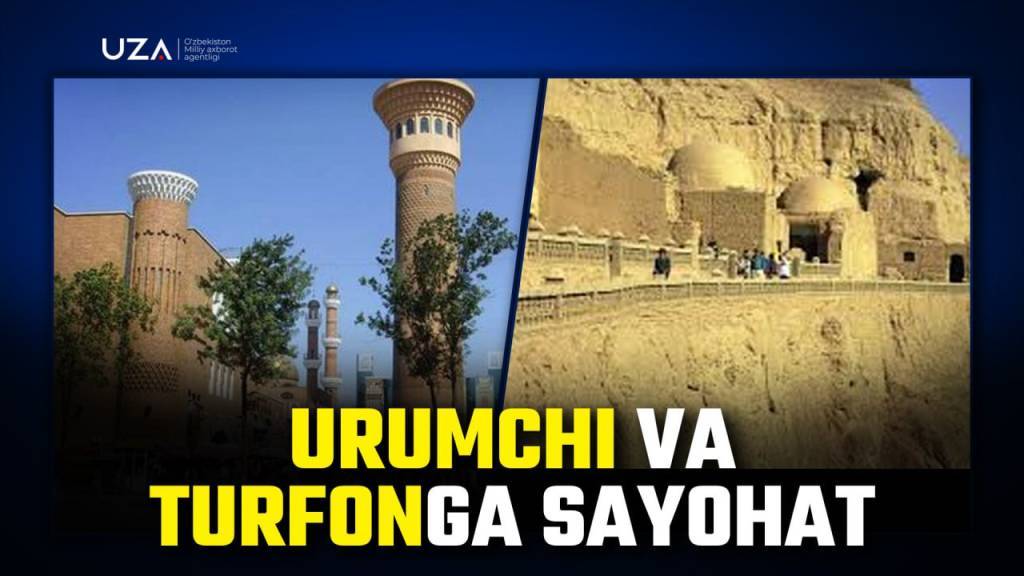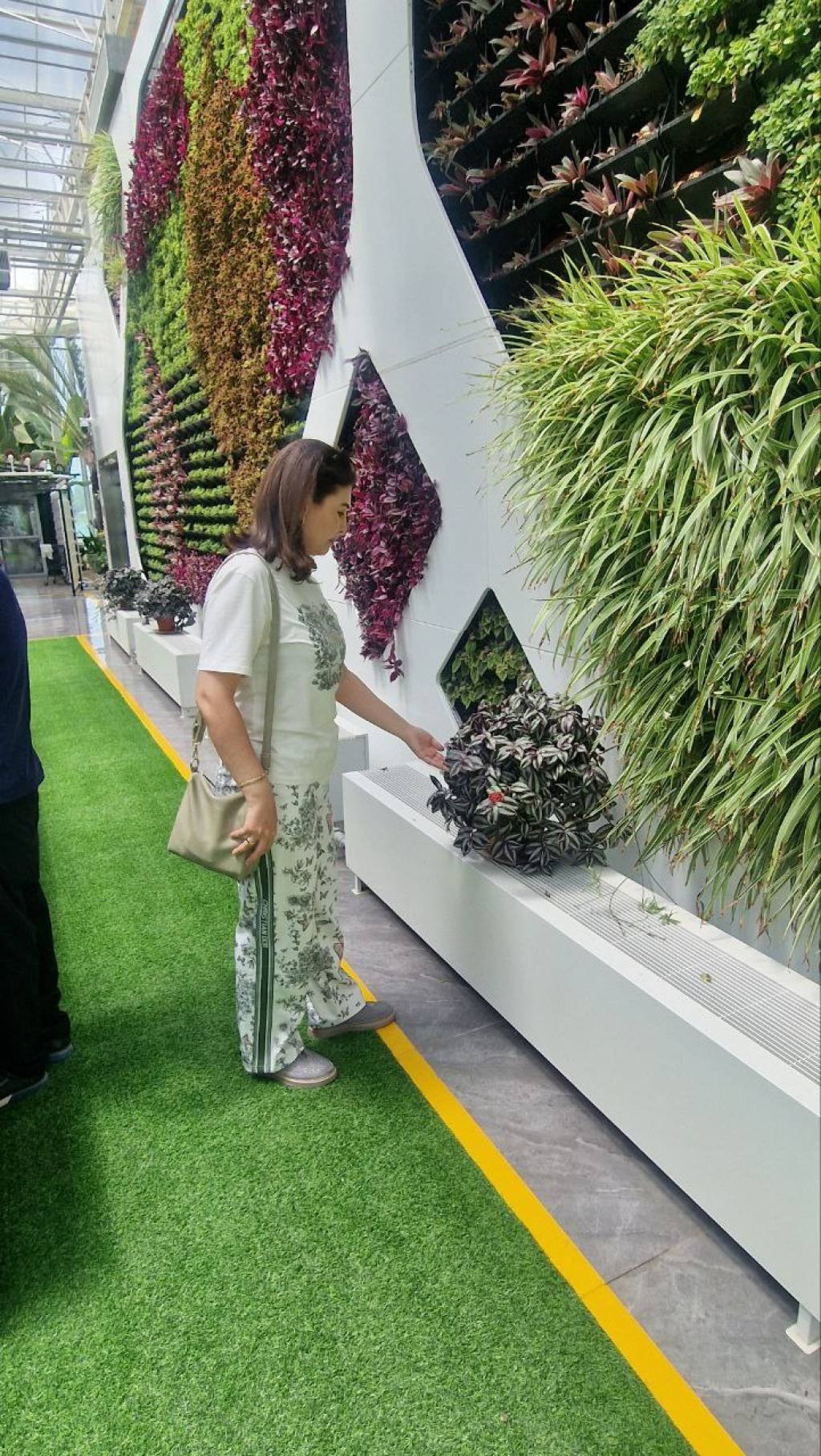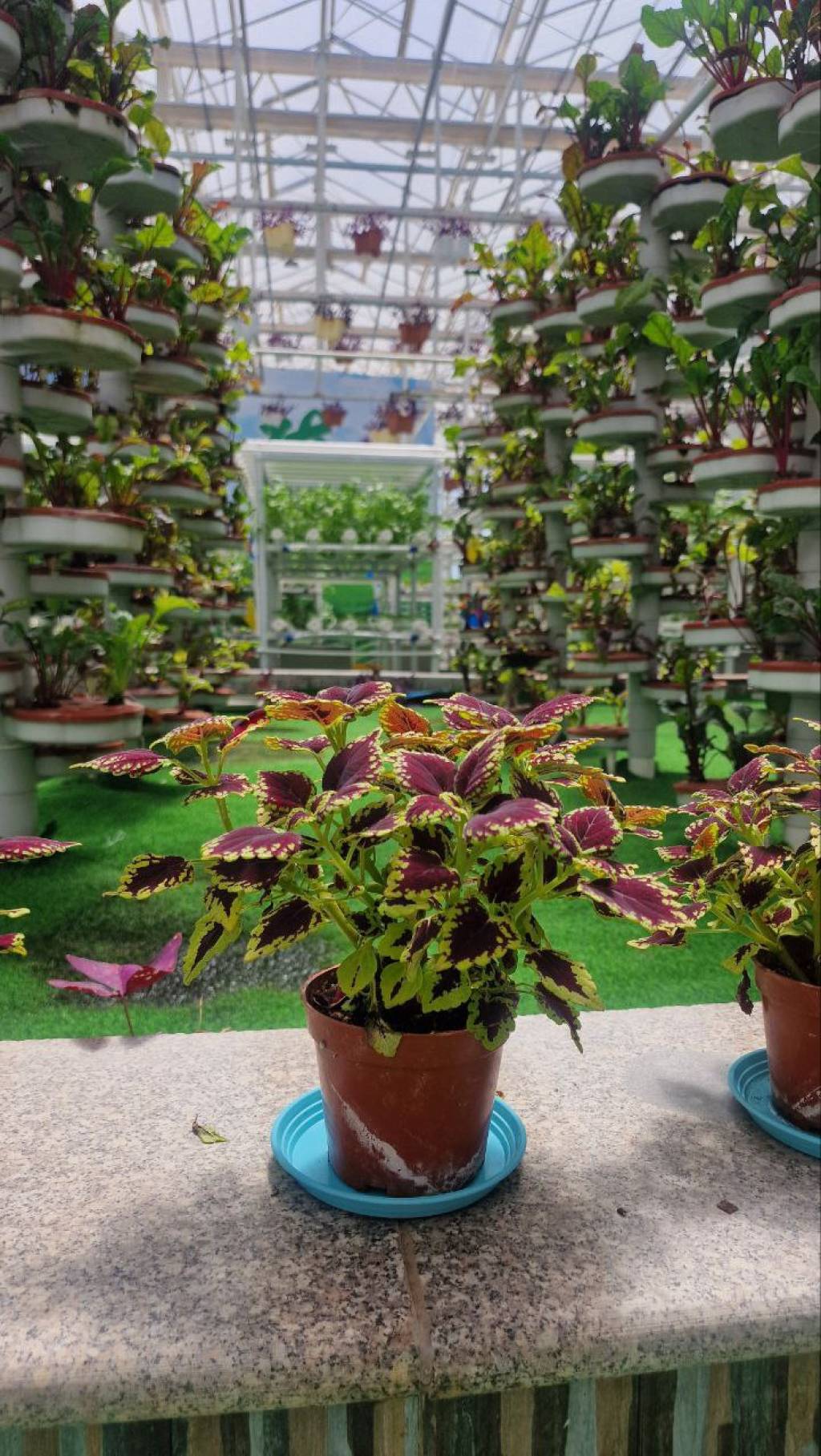
A press tour to Urumqi was organized for journalists from Uzbekistan, Kazakhstan, Kyrgyzstan, Tajikistan, and Türkiye at the initiative of the Embassy of China in Tashkent.
Urumqi – the Heart of Xinjiang
In Urumqi, the participants visited a biotechnology company engaged in scientific research, production, and innovation development.

The company has developed a world-class premium brand utilizing patented technologies for extracting water without polluting Xinjiang’s water resources and for vacuum packaging. Pure water sourced from glaciers is in high demand on the global market.
“Our company produces more than 10 types of products”, says the company’s founder, Yue Jingchun. “We extract water from mountain glaciers, which melt due to geothermal activity. The water contains a low level of deuterium, has a micro-molecular structure, and is transported in airtight stainless-steel containers with double thermal insulation, which allows the temperature to be maintained at +6°C and ensures high quality”.

According to experts, the company pays special attention to scientific research and the promotion of healthy water consumption, collaborating with the Chinese Academy of Sciences, Dalian University of Technology, and other scientific institutions.
The Urumqi International Dry Port attracted great interest, where journalists were introduced to the trade and transit opportunities within the framework of the Great Silk Road. The port, situated in the Xinjiang Uyghur Autonomous Region, serves as a central logistics and trade hub, contributing to the strengthening of international trade relations for landlocked regions.

Dry ports are specialized infrastructure facilities designed for the reception, storage, and redistribution of cargo. The Urumqi Port enables the transit of goods by rail, road, and air, ensuring efficient trade connections between China, Central Asia, Europe, and Russia.

The Urumqi Dry Port plays a vital role within the Belt and Road Initiative as a key transit point for goods destined for Europe and Central Asia.
Xinjiang Ecological Park
The Xinjiang Ecological Park, managed by the Wild Horse Corporation, made a strong impression on the participants of the press tour. This unique ancient cultural and tourist complex is dedicated to environmental protection and the preservation of heritage. The park features a collection of natural objects of great scientific and aesthetic value, including fossilized ancient trees and meteorites that are hundreds of millions of years old. The park’s ecosystem is balanced and focuses on the conservation of local flora and fauna.

The Wild Horse Corporation is committed to ensuring environmental sustainability, fostering a deeper connection between humans and nature, and promoting eco-tourism.
The park is home to the famous Fergana horses – a breed highly valued in China since ancient times for its physical strength and endurance. These horses, imported from Uzbekistan, are under the special care of the corporation. The park showcases the harmonious coexistence of humans and nature.
Modern Agriculture in Changji
The next stop was the Jiu Sheng He Seed Company and the agricultural demonstration zone in Changji. Here, the participants were introduced to modern farming technologies and the process involved in producing new types of seeds.
The company plays an essential role in the development of the region’s agriculture by producing and supplying high-quality seeds. It actively applies advanced technologies to support local and regional farmers.
The agricultural demonstration zone serves as a training and practical platform for introducing new methods and technologies in agriculture, contributing to increased crop yields and the efficient use of resources.
Xinjiang Branch of CNS
One of the most memorable moments of the press tour was the visit to the Xinjiang Branch of China News Service (CNS) in Urumqi. Journalists were provided with detailed information about the region’s socio-economic development. The work of the branch and the professionalism of its staff left a strong impression. Analytical materials and information projects dedicated to economic growth, social reforms, and cultural development of the region were presented.
The CNS branch actively cooperates with the Uzbekistan National News Agency (UzA). This partnership promotes the exchange of information and strengthens socio-economic and cultural ties between the two countries.
“Our cooperation with UzA is developing year by year”, says Li Dehua, Director of the Xinjiang Branch of CNS. “The main areas of interaction are information exchange, the implementation of joint projects, and extensive coverage of the socio-economic development of both countries. Together, we prepare articles and reports on economic development, social reforms, and cultural ties. Our plans include expanding cooperation, introducing innovative information technologies, and launching new joint media projects. Above all, we aim to contribute to strengthening regional partnership”.
Nilufar Bozorova, UzA








